The Absolute Best Foods with Creatine to Fuel Your Gains (and Brain)
Creatine is the secret sauce of many lifters’ supplement stack—for good reason. This amino acid isn’t just hanging out in your shaker bottle; it’s already at work in your body, fueling high-intensity activities like weight lifting, sprinting, and hybrid Hyrox workouts. Athletes of all types, from bodybuilders to weekend warriors, swear by supplements and foods with creatine for boosting performance.
Creatine isn’t just for your muscles. Research also links its consumption to brain health, blood-sugar regulation, and disease prevention. And while you can undoubtedly drink creatine, that’s not the only way. Nature’s got you covered: Plenty of foods come with creatine packed in.
To dive deeper into how creatine benefits the body and the best ways to fuel your muscles naturally, I connected with Brittney Bearden, MEd, RD, CSSD, LD, a sports dietitian at Teamworks Nutrition. Her expertise helped shape the insights shared here, ensuring the foods we’re highlighting boost your creatine levels and provide a well-rounded nutritional profile to support overall performance and health.
Related: How to Safely Lose 2 Pounds a Week, One of the Most Common New Year’s Resolutions
Best Foods With Creatine to Boost Energy and Muscle Growth
For those looking to boost their creatine levels naturally, incorporating these nutrient-dense foods into your diet is a fantastic start. Creatine-rich foods support muscle growth and provide a range of vitamins, minerals, and healthy fats that contribute to overall well-being.
Below is a list of the top creatine-rich foods and their nutritional benefits, including some vegan-friendly options to ensure everyone can benefit, according to Brittney Bearden, MEd, RD, CSSD, LD, a sports dietitian at Teamworks Nutrition.
1. Steak

Getty Images/Owen Franken
Steak is packed with high-quality protein, iron, and vitamin B12, essential for muscle growth, energy production, and red blood cell formation. The iron helps oxygen reach your muscles, boosting endurance and strength during workouts. Each pound of raw beef has around 4 to 5g of creatine per pound which is enough to hit a portion of your daily goal, depending on whether you’re loading creatine or in a maintenance phase.
2. Ground Beef
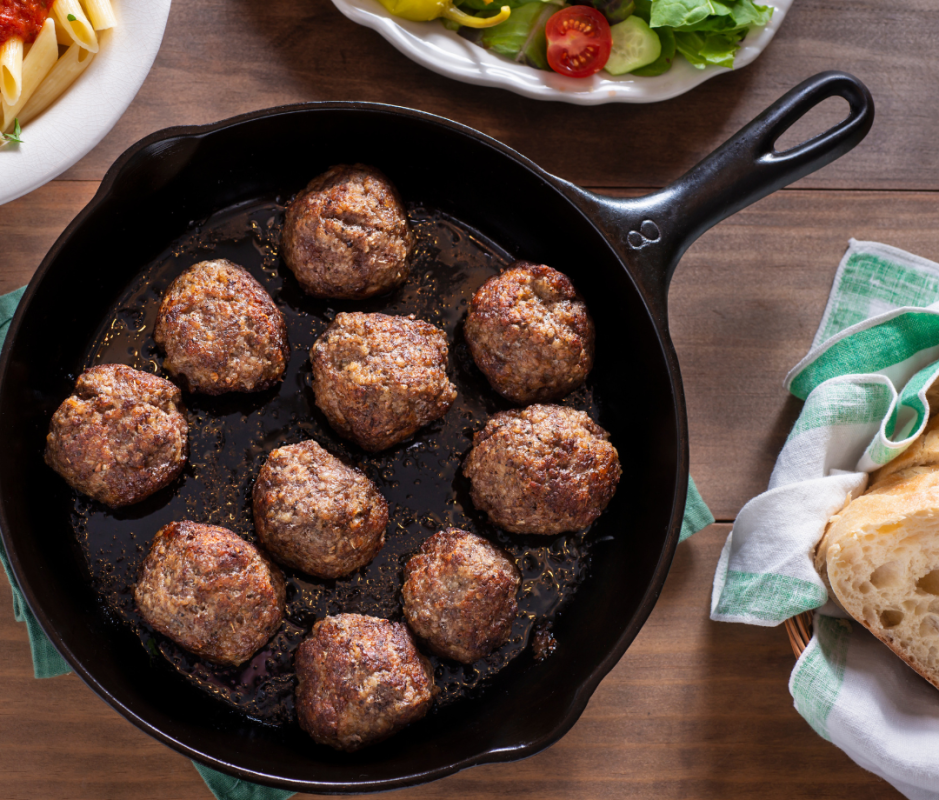
Getty Images/rudisill
A versatile and affordable option for meals like burgers, tacos, and meatballs, ground beef provides ample protein, zinc, and vitamin B6, crucial for muscle repair and immune function. Plus, each pound has anywhere from 4 to 5g of creatine.
3. Chicken
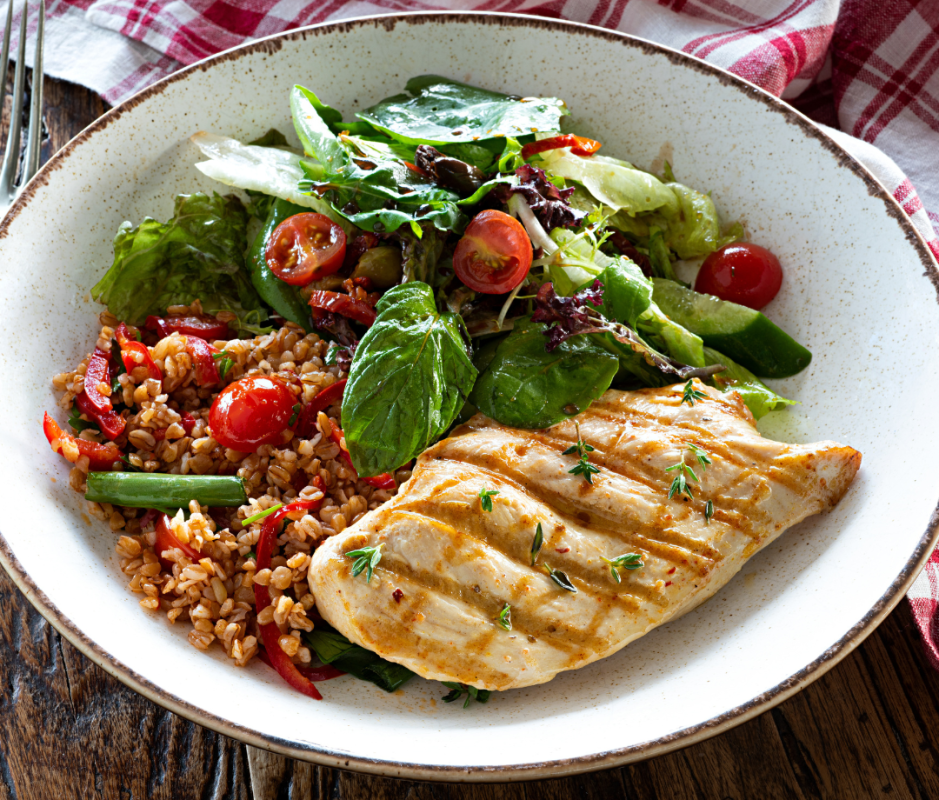
Getty Images/BURCU ATALAY TANKUT
Chicken is a lean meat source that’s also rich in niacin, which helps the body convert food into energy, as well as selenium, an antioxidant that plays a key role in muscle health and immune function. While it isn’t as high in creatine as beef, it comes in as a close second with 3 to 4g per pound.
4. Pork
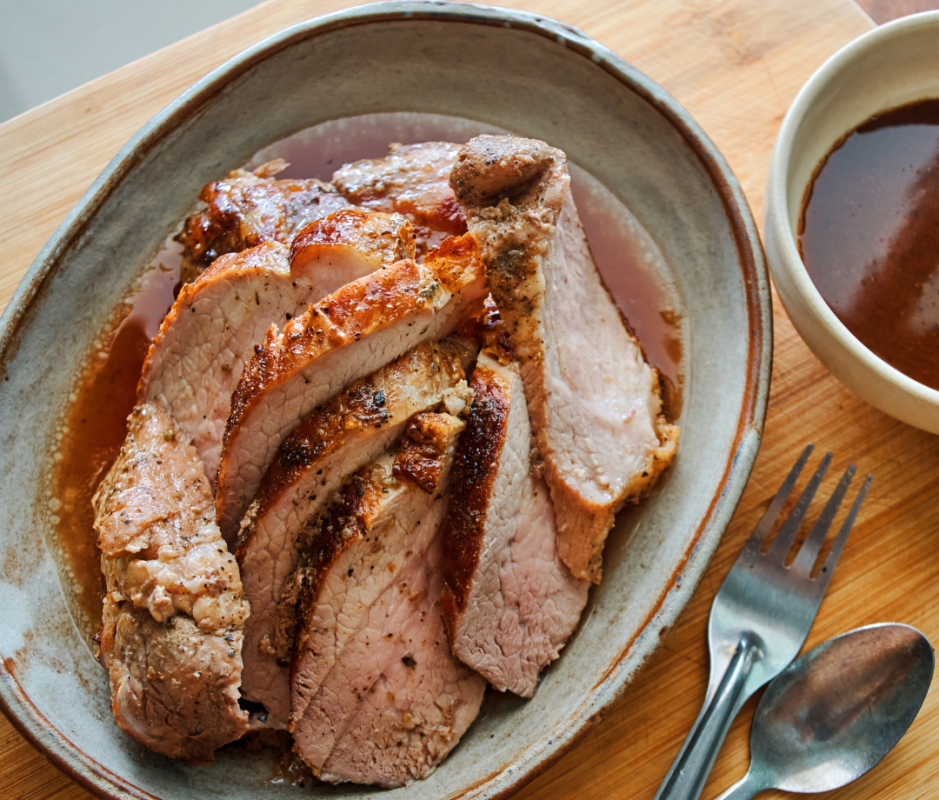
Getty Images/Krit of Studio OMG
Pork is known for being packed with thiamine, which supports energy metabolism, and zinc, which aids in muscle recovery and immune function. But with roughly 2g of creatine per pound, it’s also a flavorful way to boost creatine levels while fueling your workouts.
5. Salmon
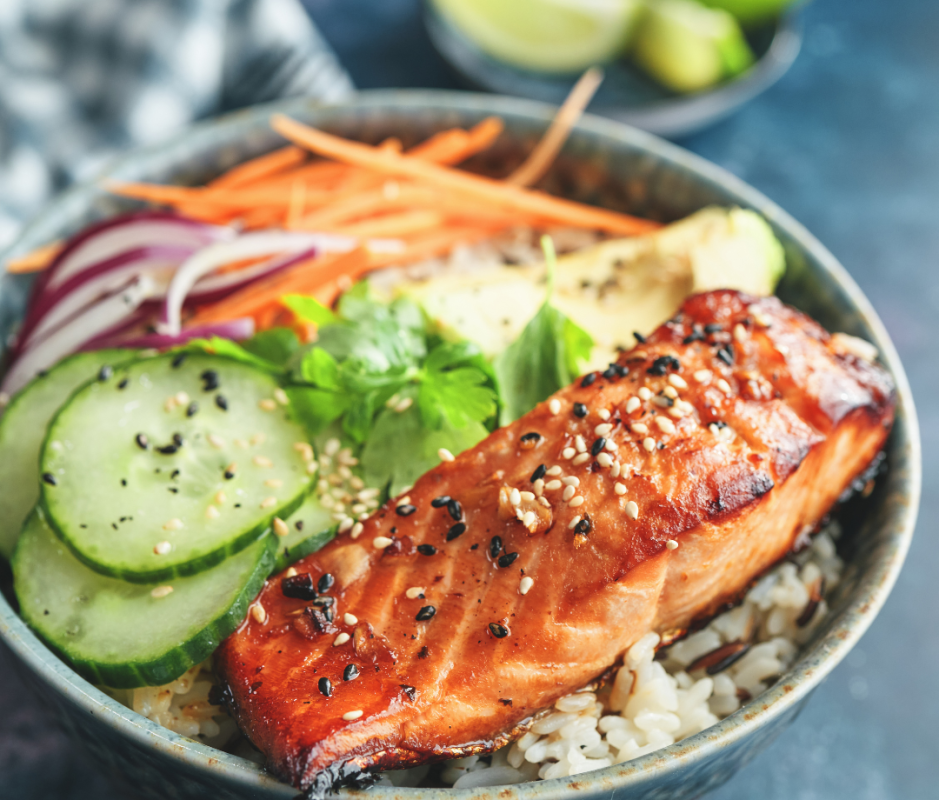
Getty Images/GMVozd
Rich in heart-healthy omega-3 fatty acids and protein, salmon supports muscle health, reduces inflammation, and aids in recovery. It also provides a dose of vitamin D, essential for bone health and muscle function, and a good chunk of creatine—about 2g per pound.
Related: Our 12 Favorite Protein Bars Are Healthy, Filling, and Perfect Before or After Workouts
6. Herring
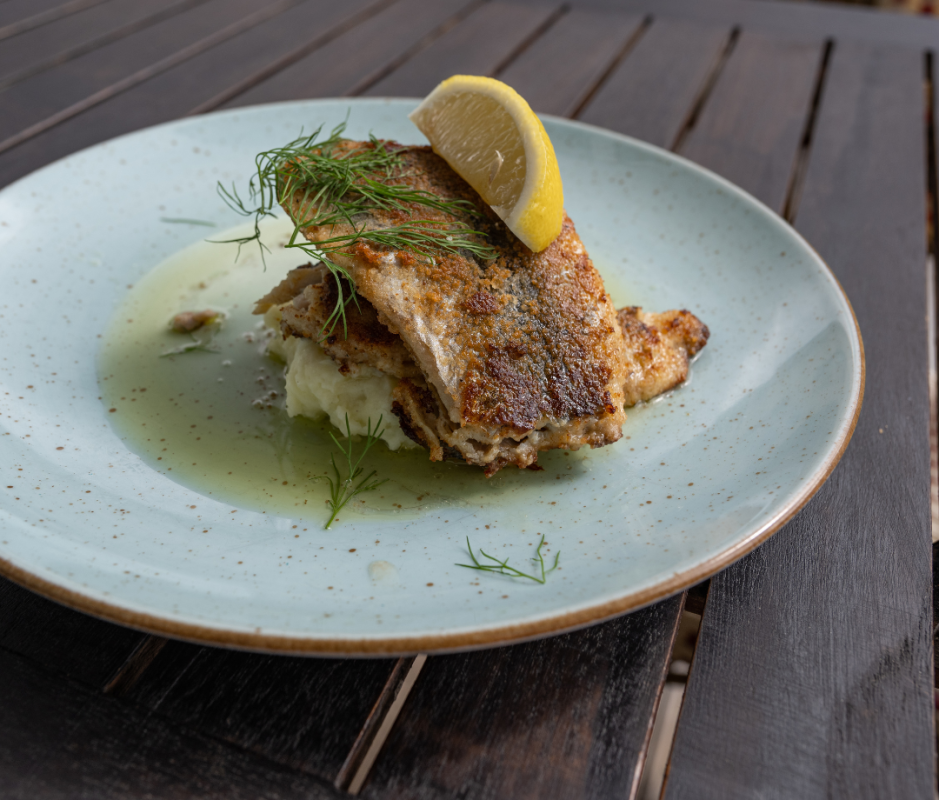
Getty Images/Malcolm P Chapman
Herring is one of the best sources of creatine (about 3 to 4.5g per pound), packed with healthy fats, vitamin D, and B12. This makes it an excellent choice for muscle recovery and enhancing brain function.
7. Tuna
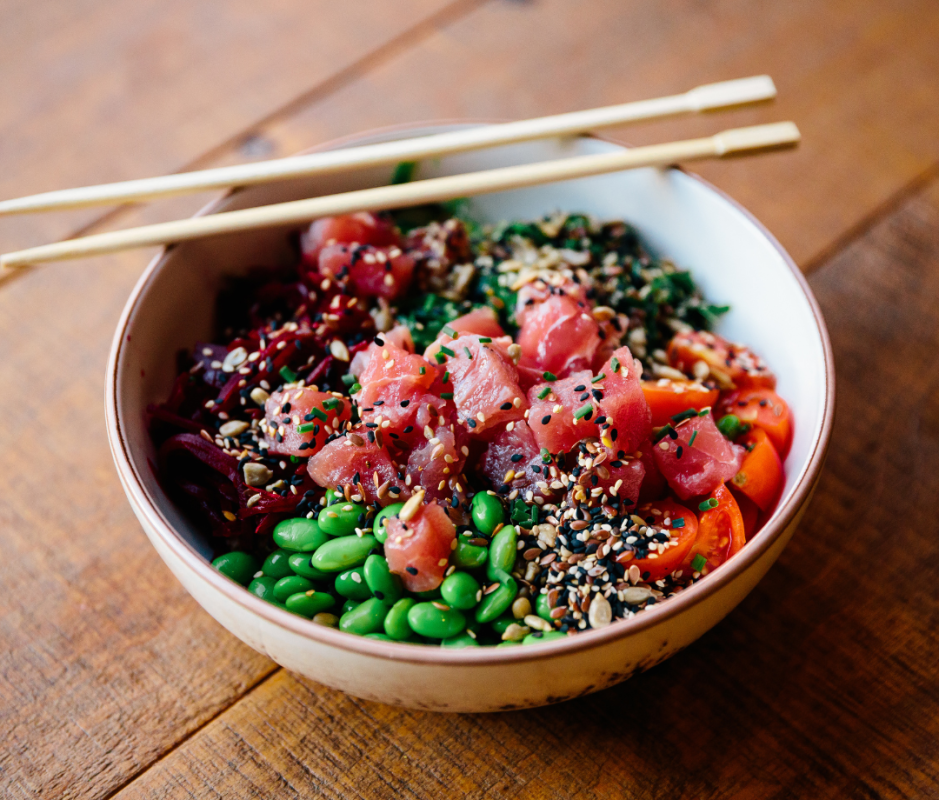
Getty Images/Alexander Spatari
Tuna is high in protein, vitamin D, and omega-3 fatty acids—all vital for muscle building, improving heart health, and maintaining bone density. Each pound of raw tuna has approximately 2g per pound.
8. Cod
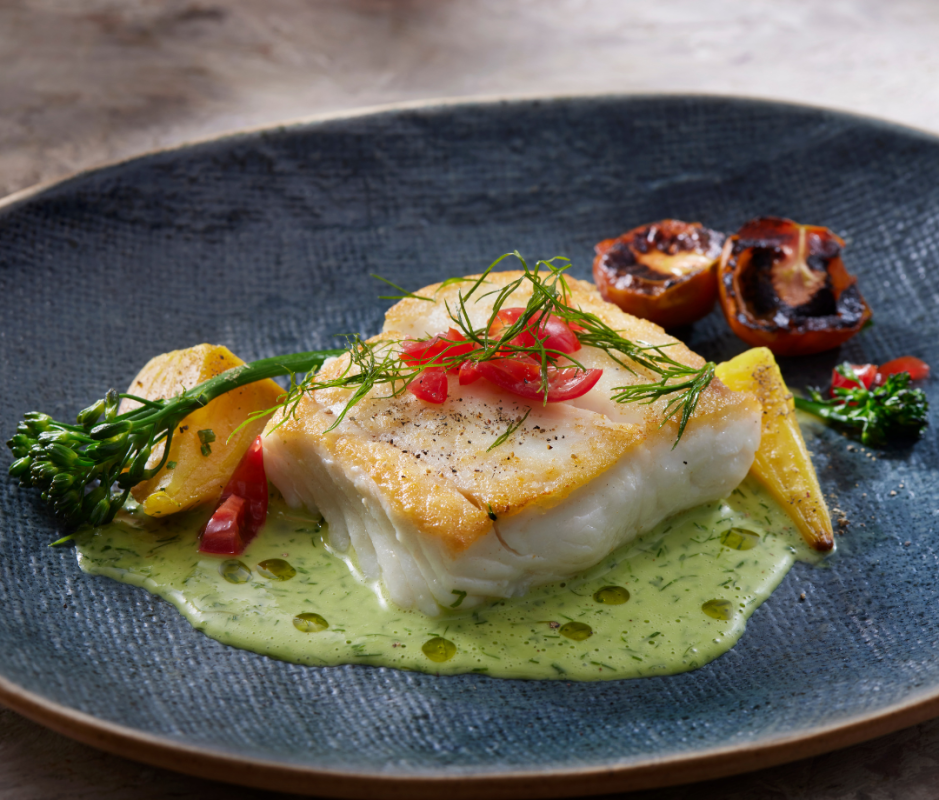
Getty Images/LauriPatterson
A lean, low-fat fish, cod is an excellent source of protein and B vitamins, particularly B6 and B12, which help with muscle function and energy production. Each pound of cod also has around 1g of creatine.
9. Lamb
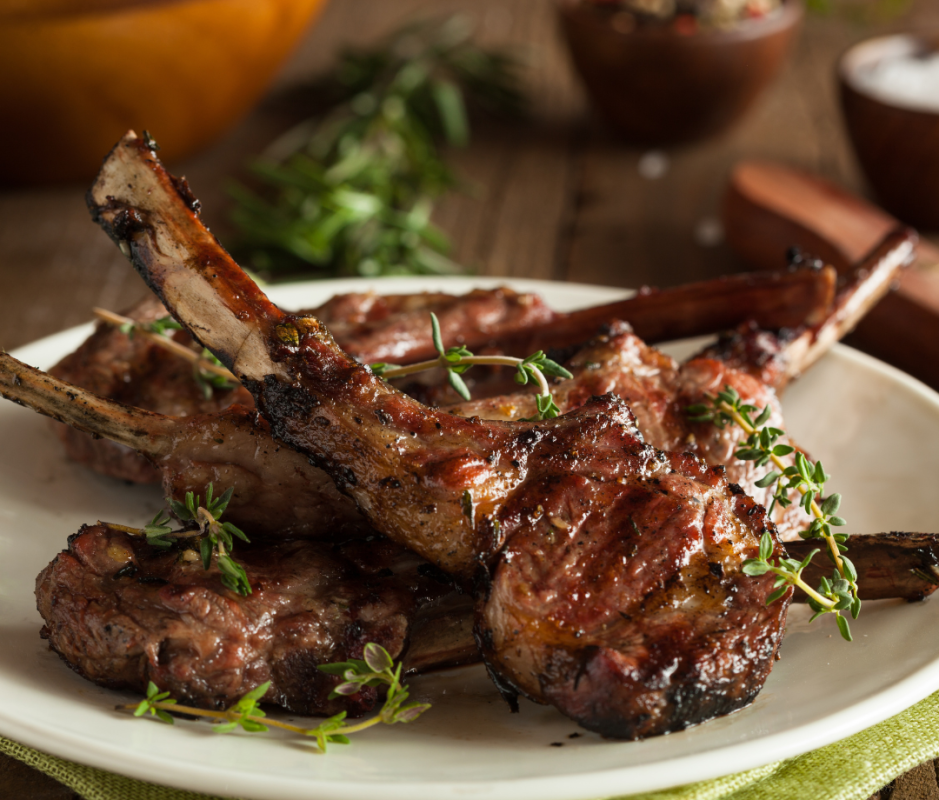
Getty Images/bhofack2
Not only is lamb loaded with zinc and selenium, which play a critical role in muscle repair and immune function, but each pound also has an estimated 4g of creatine. It’s a great source of high-quality protein and essential amino acids for muscle growth.
10. Turkey

Getty Images/skynesher
Turkey is a lean protein choice rich in tryptophan, an amino acid promoting good sleep and recovery. It’s also packed with immune-boosting nutrients like zinc and vitamin B6 and has 3 to 4g of creatine per pound.
11. Venison

Getty Images/Kohei Hara
Venison is high in protein and iron, both of which are crucial for muscle growth and improving oxygen transport. Plus, it’s low in fat and high in creatine (around 5g per pound), making it an excellent option for building lean muscle mass.
12. Shellfish (Shrimp, Crab)
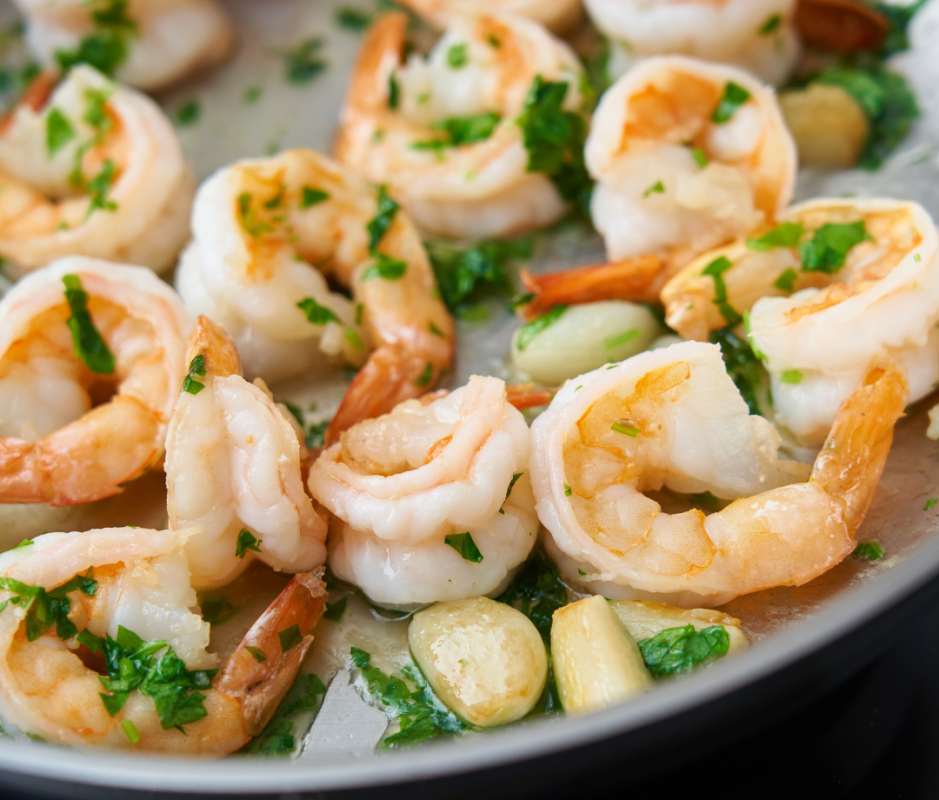
Getty Images/Natalia Gdovskaia
Shellfish are great sources of lean protein and essential minerals like iodine and selenium, which support metabolism and muscle function. These low-calorie, high-protein options are perfect for maintaining a balanced diet while boosting creatine intake and just one pound offers 2 to 3g of creatine.
Related: Top High-Protein McDonald’s Meals a Sports Nutrition Coach Would Order
What Is Creatine and How Does It Work in Your Body?
Creatine is a naturally occurring compound made from three amino acids: arginine, glycine, and methionine. “Our pancreas, liver, and kidneys produce creatine, which is stored primarily in our muscles,” Brittney Bearden, MEd, RD, CSSD, LD, a sports dietitian for Teamworks Nutrition, explains.
Once stored, creatine is key in producing adenosine triphosphate (ATP)—your body’s primary energy currency. “During high-intensity activities like sprinting or weightlifting, ATP stores are quickly depleted,” Bearden adds. “Creatine helps replenish those stores, allowing you to work at a higher intensity for longer.”
In addition to being produced in the body, creatine is found in foods, particularly animal products like red meat, poultry, and fish. Consuming these foods can help maintain natural creatine levels, though supplementation is often required for those seeking optimal performance benefits.
Related: These 2 Simple Workouts Can Improve Your VO2 Max in Record Time for HYROX and Beyond
Top Benefits of Creatine for Strength, Muscle, and Brain Health
Creatine is one of the most extensively researched supplements in the fitness and health world, and its benefits extend far beyond the gym. From powering through workouts to supporting overall health, creatine plays a crucial role in your body’s performance and recovery.
1. Increases Strength and Power
Creatine enhances energy production during high-intensity activities by replenishing ATP, the body’s primary energy source. Studies indicate that creatine consumption boosts the body’s ability to adapt and respond to training. This makes it indispensable for athletes in strength and power sports, allowing them to push harder and perform better during short bursts of intense effort like lifting, sprinting, or jumping.
2. Enhances Muscle Growth
Regular creatine intake, whether through food or supplements, helps promote muscle protein synthesis while improving muscle hydration. This dual action creates an ideal environment for muscle growth, making it a staple for anyone looking to build lean mass and enhance muscle definition over time.
3. Improves Recovery Time
Creatine does more for your workouts than you may realize—it’s also key to recovering from them. Bearden emphasizes that creatine can “reduce muscle soreness and inflammation post-workout,” helping you bounce back faster. Meeting your daily creatine needs can lead to less post-exercise soreness, quicker recovery, and potentially fewer training-related injuries.
4. Supports Brain Function
Emerging studies reveal that creatine also benefits your brain. “Creatine may enhance memory and cognitive function while reducing mental fatigue,” explains Bearden. This makes it a promising supplement for anyone looking to stay sharp throughout the day.
5. Optimizes Energy Levels
By replenishing ATP stores, creatine ensures you have the energy for intense physical activities and mental tasks. Whether powering through a grueling workout or a busy workday, creatine helps maintain your stamina, keeping you energized and focused when needed.
Related: Master the 5×5 Workout to Build Strength, Muscle, and Power
How Cooking Methods Affect Creatine Content
Cooking can impact the creatine content of foods. “Heat breaks down creatine into creatinine, which may reduce its availability,” says Bearden. Depending on the cooking method, meat can lose 5 to 30 percent of its creatine.
To preserve more creatine:
- Opt for boiling or stewing rather than grilling or frying.
- Avoid overcooking meat to maintain its nutrient profile.
Can You Rely on Food Alone to Meet Your Creatine Needs?
To load creatine stores in your body, research suggests consuming ~20 to 25g/day (0.3 g/kg of body weight daily) of creatine monohydrate for the first five to seven days, then dropping down to 3 to 5 grams daily. However, you need to take it every day to maintain full creatine stores.
While eating creatine-rich foods can help maintain your levels, Bearden notes, “It’s challenging to consume the recommended 3 to 5 grams of creatine per day solely through food.” For instance, you’d need to eat over two pounds of meat daily to meet that target—a daunting and impractical task for most.
That’s where supplementation comes in. Creatine monohydrate is the most widely studied and effective form of creatine. Bearden advises choosing a third-party tested product for quality and safety to ensure you get a reliable supplement.
Related: How to Choose the Leanest Cut of Beef for a Healthy Steak Night
The Takeaway
Creatine is a powerhouse compound with benefits ranging from improved athletic performance to enhanced brain health. While it’s naturally found in many foods like red meat, fish, and poultry, supplementation is often necessary to achieve optimal levels for performance and recovery.
By incorporating creatine-rich foods into your diet and considering supplementation, you can unlock its full potential for strength, energy, and overall health.
Why You Should Trust Me
To dive deeper into how creatine benefits the body and the best ways to fuel your muscles naturally, I connected with Brittney Bearden, MEd, RD, CSSD, LD, a sports dietitian at Teamworks Nutrition. Her expertise helped shape the insights shared here, ensuring the foods we’re highlighting boost your creatine levels and provide a well-rounded nutritional profile to support overall performance and health.

